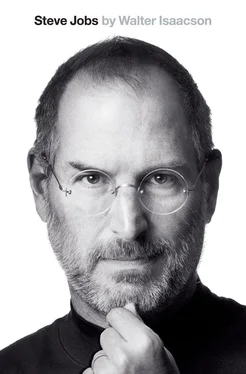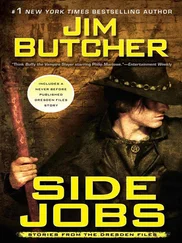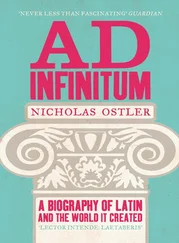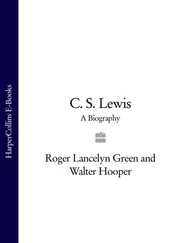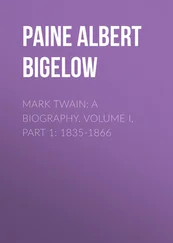Reed College
Seventeen years earlier, Jobs’s parents had made a pledge when they adopted him: He would go to college. So they had worked hard and saved dutifully for his college fund, which was modest but adequate by the time he graduated. But Jobs, becoming ever more willful, did not make it easy. At first he toyed with not going to college at all. “I think I might have headed to New York if I didn’t go to college,” he recalled, musing on how different his world—and perhaps all of ours—might have been if he had chosen that path. When his parents pushed him to go to college, he responded in a passive-aggressive way. He did not consider state schools, such as Berkeley, where Woz then was, despite the fact that they were more affordable. Nor did he look at Stanford, just up the road and likely to offer a scholarship. “The kids who went to Stanford, they already knew what they wanted to do,” he said. “They weren’t really artistic. I wanted something that was more artistic and interesting.”
Instead he insisted on applying only to Reed College, a private liberal arts school in Portland, Oregon, that was one of the most expensive in the nation. He was visiting Woz at Berkeley when his father called to say an acceptance letter had arrived from Reed, and he tried to talk Steve out of going there. So did his mother. It was far more than they could afford, they said. But their son responded with an ultimatum: If he couldn’t go to Reed, he wouldn’t go anywhere. They relented, as usual.
Reed had only one thousand students, half the number at Homestead High. It was known for its free-spirited hippie lifestyle, which combined somewhat uneasily with its rigorous academic standards and core curriculum. Five years earlier Timothy Leary, the guru of psychedelic enlightenment, had sat cross-legged at the Reed College commons while on his League for Spiritual Discovery (LSD) college tour, during which he exhorted his listeners, “Like every great religion of the past we seek to find the divinity within. . . . These ancient goals we define in the metaphor of the present—turn on, tune in, drop out.” Many of Reed’s students took all three of those injunctions seriously; the dropout rate during the 1970s was more than one-third.
When it came time for Jobs to matriculate in the fall of 1972, his parents drove him up to Portland, but in another small act of rebellion he refused to let them come on campus. In fact he refrained from even saying good-bye or thanks. He recounted the moment later with uncharacteristic regret:
It’s one of the things in life I really feel ashamed about. I was not very sensitive, and I hurt their feelings. I shouldn’t have. They had done so much to make sure I could go there, but I just didn’t want them around. I didn’t want anyone to know I had parents. I wanted to be like an orphan who had bummed around the country on trains and just arrived out of nowhere, with no roots, no connections, no background.
In late 1972, there was a fundamental shift happening in American campus life. The nation’s involvement in the Vietnam War, and the draft that accompanied it, was winding down. Political activism at colleges receded and in many late-night dorm conversations was replaced by an interest in pathways to personal fulfillment. Jobs found himself deeply influenced by a variety of books on spirituality and enlightenment, most notably Be Here Now, a guide to meditation and the wonders of psychedelic drugs by Baba Ram Dass, born Richard Alpert. “It was profound,” Jobs said. “It transformed me and many of my friends.”
The closest of those friends was another wispy-bearded freshman named Daniel Kottke, who met Jobs a week after they arrived at Reed and shared his interest in Zen, Dylan, and acid. Kottke, from a wealthy New York suburb, was smart but low-octane, with a sweet flower-child demeanor made even mellower by his interest in Buddhism. That spiritual quest had caused him to eschew material possessions, but he was nonetheless impressed by Jobs’s tape deck. “Steve had a TEAC reel-to-reel and massive quantities of Dylan bootlegs,” Kottke recalled. “He was both really cool and high-tech.”
Jobs started spending much of his time with Kottke and his girlfriend, Elizabeth Holmes, even after he insulted her at their first meeting by grilling her about how much money it would take to get her to have sex with another man. They hitchhiked to the coast together, engaged in the typical dorm raps about the meaning of life, attended the love festivals at the local Hare Krishna temple, and went to the Zen center for free vegetarian meals. “It was a lot of fun,” said Kottke, “but also philosophical, and we took Zen very seriously.”
Jobs began sharing with Kottke other books, including Zen Mind, Beginner’s Mind by Shunryu Suzuki, Autobiography of a Yogi by Paramahansa Yogananda, and Cutting Through Spiritual Materialism by Chögyam Trungpa. They created a meditation room in the attic crawl space above Elizabeth Holmes’s room and fixed it up with Indian prints, a dhurrie rug, candles, incense, and meditation cushions. “There was a hatch in the ceiling leading to an attic which had a huge amount of space,” Jobs said. “We took psychedelic drugs there sometimes, but mainly we just meditated.”
Jobs’s engagement with Eastern spirituality, and especially Zen Buddhism, was not just some passing fancy or youthful dabbling. He embraced it with his typical intensity, and it became deeply ingrained in his personality. “Steve is very much Zen,” said Kottke. “It was a deep influence. You see it in his whole approach of stark, minimalist aesthetics, intense focus.” Jobs also became deeply influenced by the emphasis that Buddhism places on intuition. “I began to realize that an intuitive understanding and consciousness was more significant than abstract thinking and intellectual logical analysis,” he later said. His intensity, however, made it difficult for him to achieve inner peace; his Zen awareness was not accompanied by an excess of calm, peace of mind, or interpersonal mellowness.
He and Kottke enjoyed playing a nineteenth-century German variant of chess called Kriegspiel, in which the players sit back-to-back; each has his own board and pieces and cannot see those of his opponent. A moderator informs them if a move they want to make is legal or illegal, and they have to try to figure out where their opponent’s pieces are. “The wildest game I played with them was during a lashing rainstorm sitting by the fireside,” recalled Holmes, who served as moderator. “They were tripping on acid. They were moving so fast I could barely keep up with them.”
Another book that deeply influenced Jobs during his freshman year was Diet for a Small Planet by Frances Moore Lappé, which extolled the personal and planetary benefits of vegetarianism. “That’s when I swore off meat pretty much for good,” he recalled. But the book also reinforced his tendency to embrace extreme diets, which included purges, fasts, or eating only one or two foods, such as carrots or apples, for weeks on end.
Jobs and Kottke became serious vegetarians during their freshman year. “Steve got into it even more than I did,” said Kottke. “He was living off Roman Meal cereal.” They would go shopping at a farmers’ co-op, where Jobs would buy a box of cereal, which would last a week, and other bulk health food. “He would buy flats of dates and almonds and lots of carrots, and he got a Champion juicer and we’d make carrot juice and carrot salads. There is a story about Steve turning orange from eating so many carrots, and there is some truth to that.” Friends remember him having, at times, a sunset-like orange hue.
Jobs’s dietary habits became even more obsessive when he read Mucusless Diet Healing System by Arnold Ehret, an early twentieth-century German-born nutrition fanatic. He believed in eating nothing but fruits and starchless vegetables, which he said prevented the body from forming harmful mucus, and he advocated cleansing the body regularly through prolonged fasts. That meant the end of even Roman Meal cereal—or any bread, grains, or milk. Jobs began warning friends of the mucus dangers lurking in their bagels. “I got into it in my typical nutso way,” he said. At one point he and Kottke went for an entire week eating only apples, and then Jobs began to try even purer fasts. He started with two-day fasts, and eventually tried to stretch them to a week or more, breaking them carefully with large amounts of water and leafy vegetables. “After a week you start to feel fantastic,” he said. “You get a ton of vitality from not having to digest all this food. I was in great shape. I felt I could get up and walk to San Francisco anytime I wanted.”
Читать дальше
